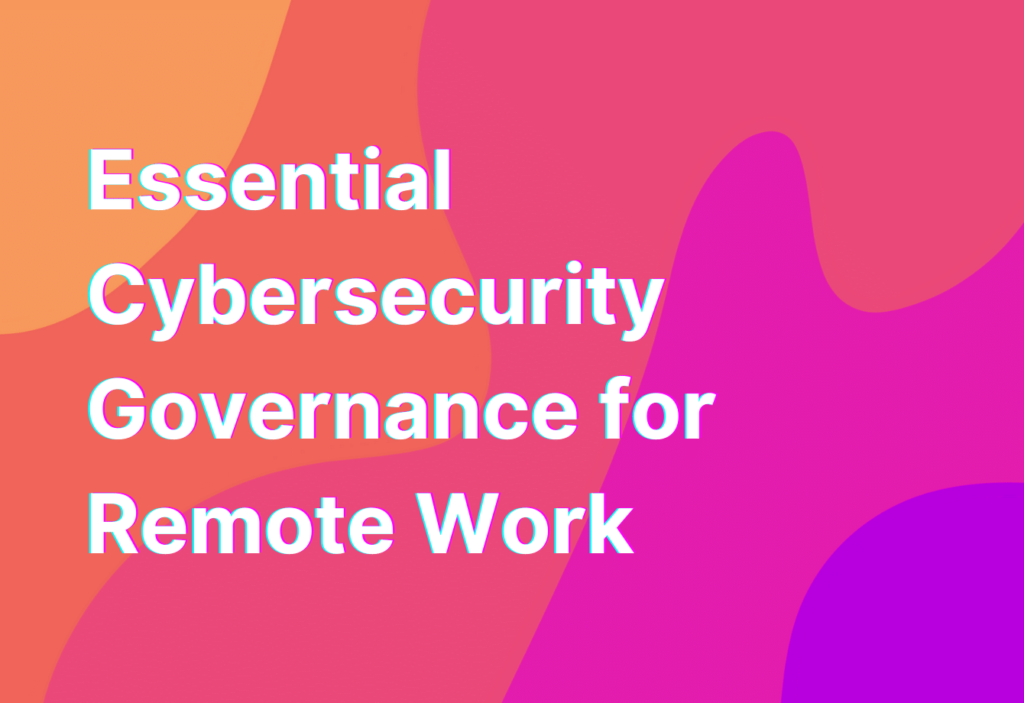Essential Cybersecurity Governance for Remote Work
Hey there, remote work warriors! It’s Ashley, your friendly neighborhood remote work advocate, here to talk about a topic that is near and dear to my heart: cybersecurity governance. In this digital age, where remote work is becoming the norm, it’s crucial to prioritize the security of our online activities. So, grab your favorite cup of coffee and let’s dive into the essentials of cybersecurity governance for remote work!
1. Use Strong and Unique Passwords
Let’s start with the basics, shall we? Using strong and unique passwords is like having a sturdy lock on your front door. It’s the first line of defense against cyber threats. Avoid using common passwords like “123456” or “password” (seriously, people still use these!). Instead, create complex passwords that include a mix of uppercase and lowercase letters, numbers, and special characters. And please, don’t reuse passwords across different platforms. I know it’s tempting, but trust me, it’s not worth the risk!
2. Enable Two-Factor Authentication
Adding an extra layer of security to your online accounts is always a good idea. Two-factor authentication (2FA) requires you to provide an additional piece of information, such as a unique code sent to your phone, in addition to your password. This way, even if someone manages to crack your password, they won’t be able to access your account without the second factor. It’s like having a bouncer at the entrance of your favorite club!
3. Keep Your Software Up to Date
Software updates may seem like a hassle, but they are crucial for maintaining the security of your devices. Developers release updates to fix vulnerabilities and patch security holes that cybercriminals could exploit. So, make sure to regularly update your operating system, antivirus software, and any other applications you use for work. It’s like giving your devices a much-needed spa day!
4. Be Wary of Phishing Attempts
Ah, phishing, the art of tricking people into revealing sensitive information. Cybercriminals are getting craftier by the day, so it’s important to stay vigilant. Be cautious of emails, messages, or calls that ask for personal or financial information. Check the sender’s email address, hover over links to see where they lead, and never download attachments from unknown sources. Remember, if something seems fishy, it’s probably a phishing attempt!
5. Secure Your Home Network
Working remotely means relying on your home network for internet access. So, it’s crucial to secure it like Fort Knox! Start by changing the default password on your router to something strong and unique. Enable network encryption, such as WPA2, to protect your Wi-Fi network from unauthorized access. And if you’re feeling extra fancy, consider setting up a separate guest network for your visitors. It’s like having a moat around your digital castle!
Well, my fellow remote work enthusiasts, we’ve reached the end of our cybersecurity governance journey. Remember, implementing these essential practices will go a long way in keeping your online activities secure. If you want to learn more about remote work, including top accommodation options for digital nomads, check out this page. Stay safe, stay secure, and keep rocking that remote work life!


